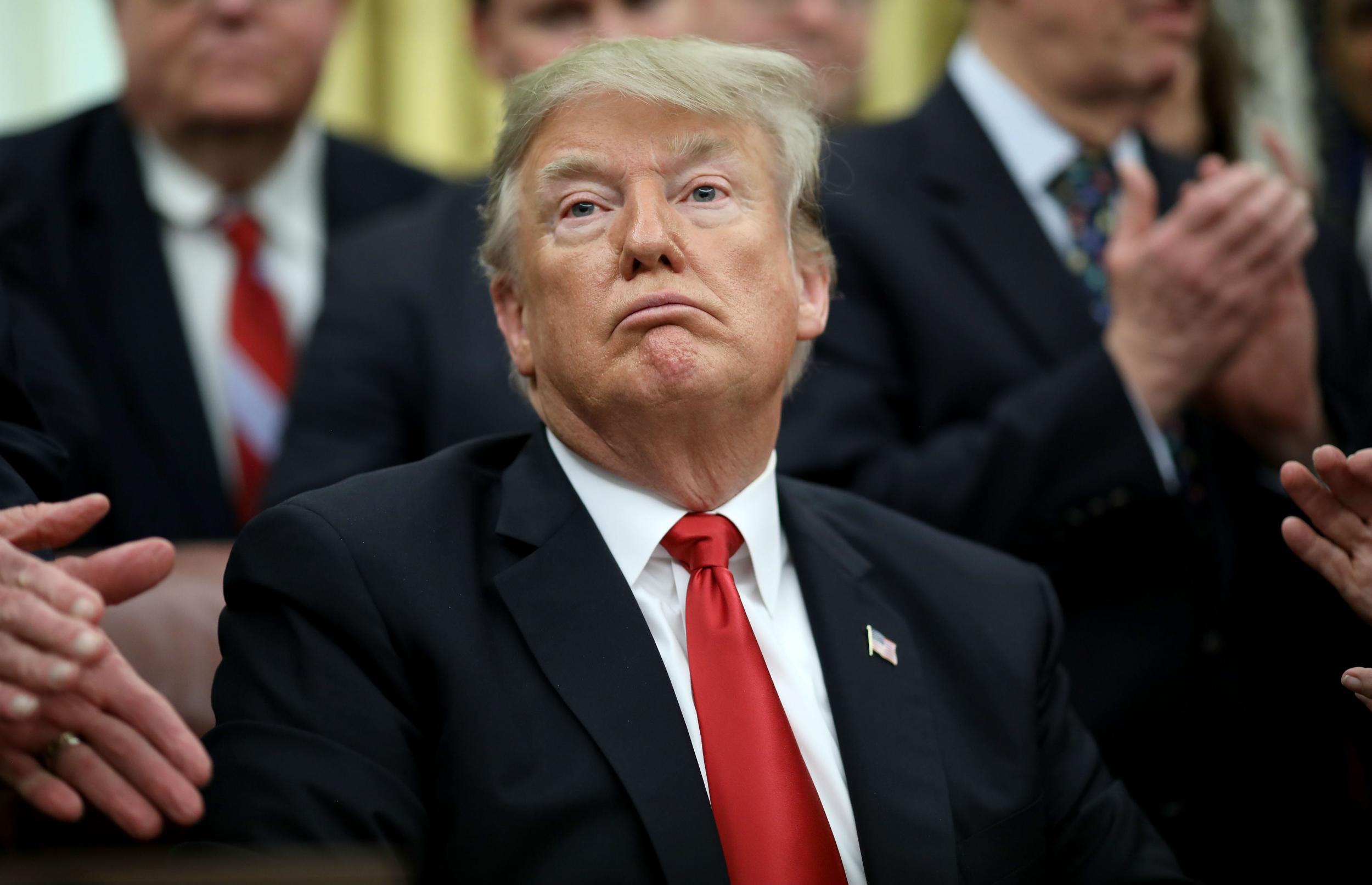The engine that sustained Trump's popularity could be about to stall
The president wants $5bn for his ‘great steel barrier’ with Mexico, for which congress refuses to pay, knowing that the wall is unpopular with American voters

Your support helps us to tell the story
From reproductive rights to climate change to Big Tech, The Independent is on the ground when the story is developing. Whether it's investigating the financials of Elon Musk's pro-Trump PAC or producing our latest documentary, 'The A Word', which shines a light on the American women fighting for reproductive rights, we know how important it is to parse out the facts from the messaging.
At such a critical moment in US history, we need reporters on the ground. Your donation allows us to keep sending journalists to speak to both sides of the story.
The Independent is trusted by Americans across the entire political spectrum. And unlike many other quality news outlets, we choose not to lock Americans out of our reporting and analysis with paywalls. We believe quality journalism should be available to everyone, paid for by those who can afford it.
Your support makes all the difference.British and United States politics share themes and borrow from each other. The Reagan-Thatcher partnership, the Clinton-Blair love-in and the parallels between the Trump movement and Brexit are only the most obvious. But the US is another country; they do politics differently there.
The frequent Christmas agonies over shutting down the federal government seem surprisingly crude for a rich democracy. Perhaps it seems so alien to the British because our more flexible constitution developed mechanisms for resolving these crises long ago. After all, the UK parliament’s power lay in its power to “supply” the government with tax revenue – an underlying reality recognised in the “confidence and supply” agreement by which the Democratic Unionist Party sustains Theresa May’s ministry.
In practice, the US system has become less crude since the annual shutdowns of Jimmy Carter’s presidency in the 1970s. As we reported yesterday, essential functions such as national security and law enforcement are increasingly protected, and shutdowns have happened less often.
An elaborate political ritual has grown up around the turning off of the flow of money to the government, as the president and leaders of congress manoeuvre to try to make sure the other side gets the blame. Usually, these things are resolved when the heat of public opinion becomes too great for one side to bear.
This time, President Trump is on the defensive, but holding his own. The issue seems simple. He wants congress to vote for the $5bn for his wall – which he now calls “a great steel barrier” – along the border with Mexico; and congress says no.
The wall is not popular, although it is supported by nearly 40 per cent of Americans. And the shutdown was unpopular before it happened, with 57 per cent saying the president should “compromise on the border wall to prevent gridlock”.
But Democrats should be careful, because the wall, for all its expense (which will not be met by the Mexican government, whatever Mr Trump said) and pointlessness, is a powerful symbol of one of the issues that helped elect Mr Trump: control of immigration.
Congressional leaders need to move the political debate on to the other issue that helped put Mr Trump in the White House: the economy. With the US stock markets falling sharply and fears growing of a slowdown in the economy, the engine that has sustained the president’s popularity with 40 per cent of Americans may be stalling. As long as the Democrats can use the federal shutdown to highlight the waste of taxpayers’ money and to portray Mr Trump as being at the mercy of events, they must hold firm.
Join our commenting forum
Join thought-provoking conversations, follow other Independent readers and see their replies
Comments